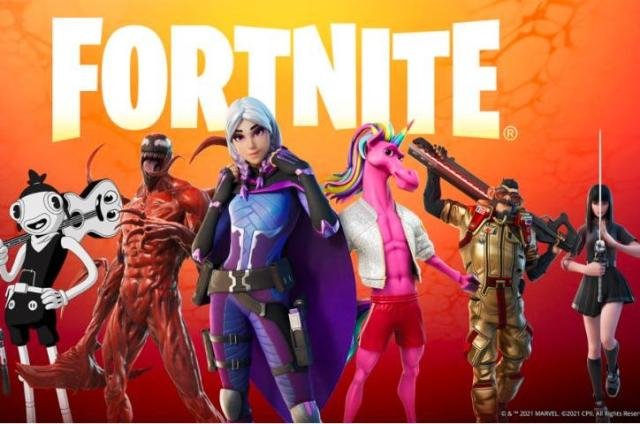A high-profile antitrust fight saw Fortnite pulled from Apple and Google’s app stores four years ago. But now, Epic’s hugely popular game is back. And it heralds a new world for tech companies and their customers.

Both Google and Apple have started to open-up their stores and allow more third-party payments on apps. This was mostly driven by the regulatory changes in the European Union in the form of the Digital Markets Act (DMA).
The mobile app store in our iPhone or Android is worth big money. The mobile app market is valued at about $170 billion a year in app sales and subscriptions. In comparison the laundry detergent market is worth $185 billion globally. People spend almost as much on apps as they do on soap.
But while there are many producers and shops for laundry detergents there have been practically only two shops globally for apps. Apple dominates the market with over two-thirds of the revenue spent in its store, and Google accounts for pretty much most of the rest.
But the times they are a-changing.
Changes for iPhone users
The DMA requires technology companies to open their platforms to competitors, and Apple has announced that third-party providers will now be allowed to advertise and provide links to any software, including those hosted on alternative app download platforms.
EU users will have the ability to remove default Apple applications such as the App Store, Safari, and more. The only apps exempt from removal are the Settings and Phone applications. Users will also gain greater control over default settings for browsers, messaging, phone calls, and other functions. This move aims to increase consumer choice in compliance with the DMA.
Apple is set to allow alternative app stores and payment methods on its devices, with developers required to meet specific privacy and security criteria.
Consumers will have more apps to choose from. Publishers, just like the game publisher Epic, will now release mobile apps for iPhones as they will be attracted by lower fees. In practice, some users might not notice: the App store already counts 1.96 million apps, a great choice. However, it is likely that this number is going to increase even more.
It is important to stress that the changes in the Apple customer experience will remain limited to European Union countries. However, regulatory reviews are taking place elsewhere.
Changes at Apple
The changes at Apple include a new organisation set up in its App Store division. This shows how the change is seen as structural. Apple is considering that the market is going to change.
Matt Fischer, who has led the App Store since 2010, is leaving the company. The division will now be split into two teams: one managing Apple’s own store and the other overseeing alternative app distribution. Carson Oliver will head the App Store division, and Ann Thai will manage the alternatives business. Both will report to Phil Schiller, who is responsible for the App Store.
These measures are part of Apple’s ongoing efforts to comply with the DMA and avoid substantial fines that could reach up to 10 percent of its global turnover. The changes represent a significant shift for Apple, which has traditionally maintained a closed ecosystem, justifying this as necessary for user security.
Changes for potential challengers
There will be changes for content owners too. Apple has already introduced new terms for EU developers, allowing a reduced commission fee range from 10-17 percent as of January 2024. Apple had previously charged fees of up to 30 percent. Content providers will now be able to set up alternative payment options.
Apple has also introduced new fees for third-party providers who direct users to alternative platforms. There will be a 5 percent initial installation fee and a 10 percent service fee for purchases made within the first 12 months after app installation. Thus, the terrain is becoming more open to newcomers, and companies such as Microsoft and Epic Games are plotting to capitalise on such an opportunity. Microsoft aims to establish its SDK as the standard for developers looking beyond the Google Play Store and the App Store. Similarly, Epic Games is set to launch a new mobile storefront on Google’s Android devices.
The return of Fortnite is just the beginning.
These issues will be examined at MEF’s event Global Carrier Billing and Mobile Payments Summit in Amsterdam on September 17th and 18th. And the debate will continue at MEF’s online monthly Interest Group call for the Mobile Content & Advertising Forum.

Anzelle RobertsonBy Anzelle Robertson, Content & Advertising Director, Mobile Ecosystem Forum
